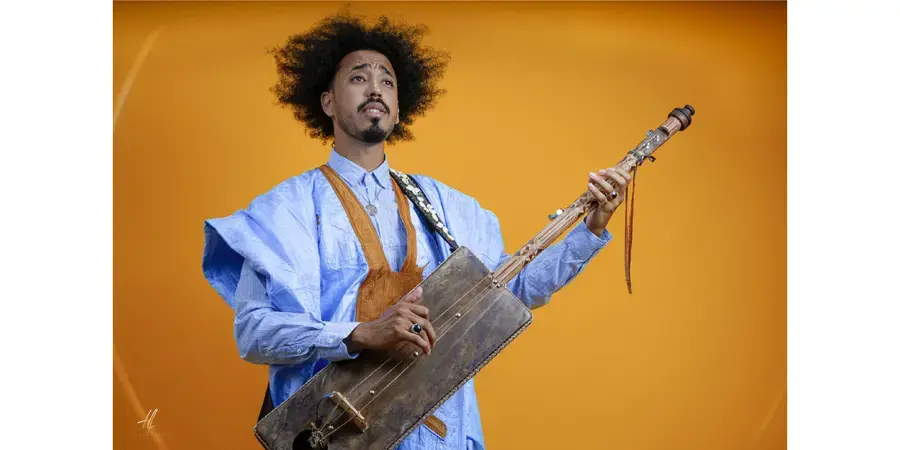Samir LanGus: Gnawa Music

Contact:
Carriage Barn Music Series — Spring 2024
OPEN TO THE PUBLIC | Moroccan musician Samir LanGus plays the electric guimbri, a three-string North African instrument, and will bring Gnawa, traditional trance music known as "the Moroccan Blues" in a percussion-heavy sextet.
Samir LanGus is a Grammy nominated musician, born and raised in the city of Agadir, Morocco. Music has always been a part of the constant variety of street sounds of his city, from merchants to entertainers and calls to prayer. LanGus began learning Gnawa, a traditional, spiritual trance music, at an early age from the Gnawa masters of Morocco especially Maalem Hamid El Kasri.
Gnawa music is the ritual trance music of Morocco’s black communities, originally descended from the enslaved people and soldiers once brought to Morocco from Northern Mali and Mauritania. Often called “The Moroccan Blues,” Gnawa music has a raw, hypnotic power that fascinated outsiders as diverse as writer/composer Paul Bowles, jazz giant Randy Weston and rock god Jimi Hendrix. The music is utterly singular, played on an array of unique instruments—from the lute-like sintir that the band leader uses to call the tune, to the metal karqaba, castanets with which the kouyos (chorus) keep time and pound out clattering, hypnotic rhythms. The music is believed to heal people possessed by jinn, or spirits, in all night ceremonies called lila.
Performers:
Samir LanGus: guimbri and lead vocals
Carolina Mama: backing vocals
Nizar Dahmani: drums
Eden Bareket: baritone saxophone
Elisha Henis: keys
Omar Bouady: karkaba (castanets)